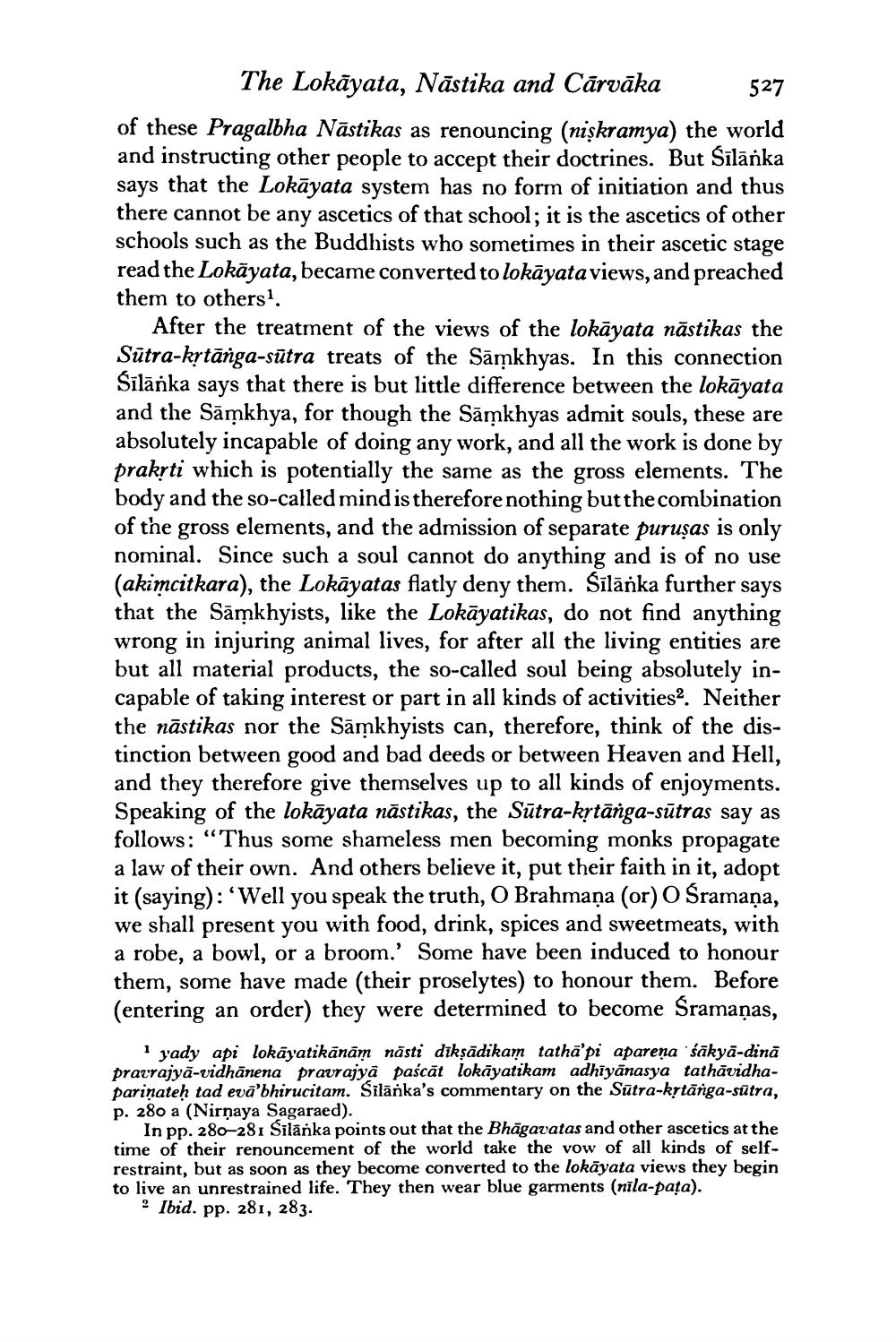________________
The Lokāyata, Nāstika and Cārvāka 527 of these Pragalbha Nāstikas as renouncing (niskramya) the world and instructing other people to accept their doctrines. But Sīlānka says that the Lokāyata system has no form of initiation and thus there cannot be any ascetics of that school; it is the ascetics of other schools such as the Buddhists who sometimes in their ascetic stage read the Lokāyata, became converted to lokāyata views, and preached them to others.
After the treatment of the views of the lokāyata nāstikas the Sūtra-kytānga-sūtra treats of the Sāmkhyas. In this connection Sīlārka says that there is but little difference between the lokāyata and the Sāmkhya, for though the Sāmkhyas admit souls, these are absolutely incapable of doing any work, and all the work is done by prakrti which is potentially the same as the gross elements. The body and the so-called mind is therefore nothing but the combination of the gross elements, and the admission of separate puruşas is only nominal. Since such a soul cannot do anything and is of no use (akimcitkara), the Lokāyatas flatly deny them. Silānka further says that the Sāmkhyists, like the Lokāyatikas, do not find anything wrong in injuring animal lives, for after all the living entities are but all material products, the so-called soul being absolutely incapable of taking interest or part in all kinds of activities?. Neither the nāstikas nor the Sāmkhyists can, therefore, think of the distinction between good and bad deeds or between Heaven and Hell, and they therefore give themselves up to all kinds of enjoyments. Speaking of the lokāyata nāstikas, the Sūtra-kytānga-sūtras say as follows: “Thus some shameless men becoming monks propagate a law of their own. And others believe it, put their faith in it, adopt it (saying): 'Well you speak the truth, O Brahmaņa (or) O Sramaņa, we shall present you with food, drink, spices and sweetmeats, with a robe, a bowl, or a broom.' Some have been induced to honour them, some have made (their proselytes) to honour them. Before (entering an order) they were determined to become Sramaņas,
1 yady api lokāyatikānām nāsti dikşādikam tathā'pi aparena śākyā-dinā pravrajyā-vidhānena pravrajyā paścāt lokāyatikam adhīyānasya tathāvidhapariņateh tad evā'bhirucitam. Silānka's commentary on the Sūtra-kytānga-sūtra,
p. 280 a (Nirnays. Silanka points one world take the
In pp. 280-281 Silanka points out that the Bhāgavatas and other ascetics at the time of their renouncement of the world take the vow of all kinds of selfrestraint, but as soon as they become converted to the lokāyata views they begin to live an unrestrained life. They then wear blue garments (nila-pața).
? Ibid. pp. 281, 283.




